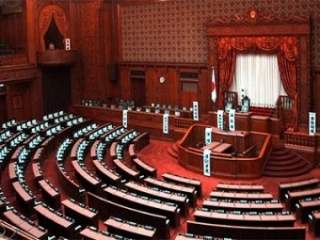Korean and Japanese Legislators Working Together
Despite often tense relations, legislative exchanges have occured between the two for decades. Deepening that aspect of the relationship could be constructive.
e) Utilize the interparliamentarians’ groups as ‘human hotlines’. Aside from building esprit de corps and general camaraderie through regular bilateral interaction, the respective groups can help prevent any sudden political controversies from holding relations hostage by serving as a consultation mechanism. This would mean the various members would conduct prior consultation and negotiation on issues such as visits to the Yasukuni Shrine or the highly-disputed territory of Dokdo/Takeshima.
f) Integrate the efforts already undertaken at the grassroots level. Harmonization between the activities of extant civic society groups and organizations with potential initiatives that become subsumed under interparliamentary diplomacy is key. To that end, a possible candidate from the Japanese side is the Genron NPO—a private, nonprofit think tank that launched a “Japan-Korea Future Dialogue” in May 2013—and the Korea-Japan Forum from the Korean side—a nongovernmental organization (NGO) formally registered with the South Korean Ministry of Foreign Affairs (MOFA).
The Japan-Korea Parliamentarians’ Union and the Korea-Japan Parliamentarians’ Union have been underappreciated and underused channels of bilateral communication for Tokyo and Seoul. Not only are politicians generally less susceptible to media sensationalism that inhibits genuine interstate diplomacy, but they can also work between the government and the public. The policy recommendations listed above should serve to increase the visibility of the parliamentarians’ unions amongst the citizenry as well as their legitimacy in the eyes of decision-makers.
Jiun Bang is a PhD candidate at the University of Southern California.
Image: Wikimedia Commons/Chris 73. CC BY-SA 3.0.

